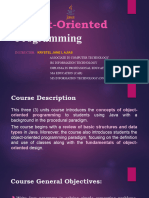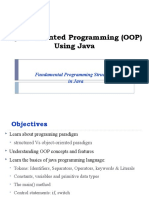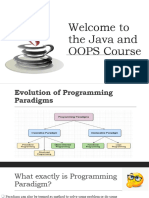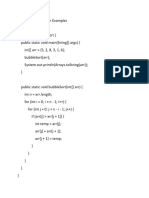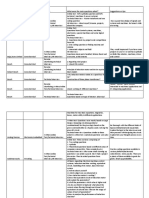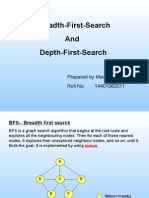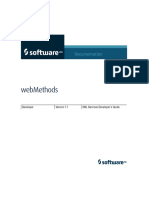0% found this document useful (0 votes)
45 views30 pagesJava Programming Essentials
This document discusses programming languages and paradigms and introduces the Java programming language. It defines programming as a process of telling computers how to solve problems through instructions in a language they can understand. It describes how high-level programming languages make programming more understandable for humans compared to machine language. It also discusses procedural and object-oriented programming paradigms and provides examples in both styles. Finally, it gives an overview of how to compile and run a simple Java program and introduces some key concepts like the Java Virtual Machine and Java Runtime Environment.
Uploaded by
rabexa4689Copyright
© © All Rights Reserved
We take content rights seriously. If you suspect this is your content, claim it here.
Available Formats
Download as PDF, TXT or read online on Scribd
0% found this document useful (0 votes)
45 views30 pagesJava Programming Essentials
This document discusses programming languages and paradigms and introduces the Java programming language. It defines programming as a process of telling computers how to solve problems through instructions in a language they can understand. It describes how high-level programming languages make programming more understandable for humans compared to machine language. It also discusses procedural and object-oriented programming paradigms and provides examples in both styles. Finally, it gives an overview of how to compile and run a simple Java program and introduces some key concepts like the Java Virtual Machine and Java Runtime Environment.
Uploaded by
rabexa4689Copyright
© © All Rights Reserved
We take content rights seriously. If you suspect this is your content, claim it here.
Available Formats
Download as PDF, TXT or read online on Scribd
/ 30






























